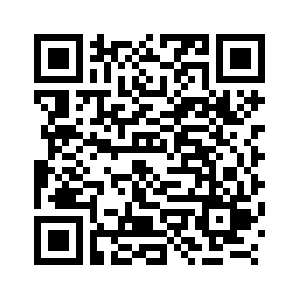
A doctor from the 11th batch of Chinese medical team provides free treatment for a boy in Nakitun Village, Juba, South Sudan, April 10, 2024. (Xinhua/Han Xu)
JUBA, April 11 (Xinhua) -- Mary Keji, a resident of Nakituen Korok South area of Rajaf Payam, located seven km west of Juba, the capital of South Sudan, had been stuck for a month with her four-year-old sick child due to lack of a nearby health facility.
Her child Agnes Poni has been suffering from a combination of gastritis, flu and skin rash since March, but was not getting proper medical treatment until the opportunity arose during the visit of the 11th batch of the Chinese medical team to her village.
Keji said that she previously had sought treatment from several clinics in Juba, including Al Saba Children's Hospital, but the condition of her child had not improved.
"I moved with my child to several clinics but the condition of the child did not improve. I am happy to have got assistance from the Chinese doctors, I have spent a lot of money visiting private clinics," Keji said after the Chinese medics gave her medicine which could last for two weeks for her ailing child. "Private clinics are very expensive but the Chinese doctors are treating people here for free."
Gastritis is inflammation (irritation) of the stomach lining. This may be caused by many factors including infection, alcohol, particular medications and some allergic and immune conditions.
The United Nations Mission in South Sudan (UNMISS) headquarters is hosted on the community land in Nakituen Korok South along the Juba-Yei road.
The medical camp was initiated by the Chinese peacekeepers who often patrol the community in Nakituen Korok South.
Jane Yange, 69, who has suffered from gastritis for seven years, had also failed to get proper medication due to not only the lack of money but also the absence of a health facility in her locality.
"Whenever I could eat food, I develop diarrhea and stomach inflammation," she said. Yange was able to get free antibiotics and other medicine for her condition from the Chinese doctors.
Gabriel Ladu, community secretary of Nakituen Korok South, commended both the Chinese peacekeepers and the medical team for providing in-kind medical services to the community. "The Chinese peacekeepers are the ones who came up with this idea of bringing Chinese doctors to conduct medical camp here, we were not aware of the presence of the Chinese medical team in the country," Ladu said.
"We are the host community to the UNMISS headquarters and the Chinese peacekeepers are providing security to the community around the UN headquarters," he added.
Ladu said that the vital medical services provided to the community will help improve the lives of the local people. ■

A doctor from the 11th batch of Chinese medical team provides free treatment for a child in Nakitun Village, Juba, South Sudan, April 10, 2024. (Xinhua/Han Xu)
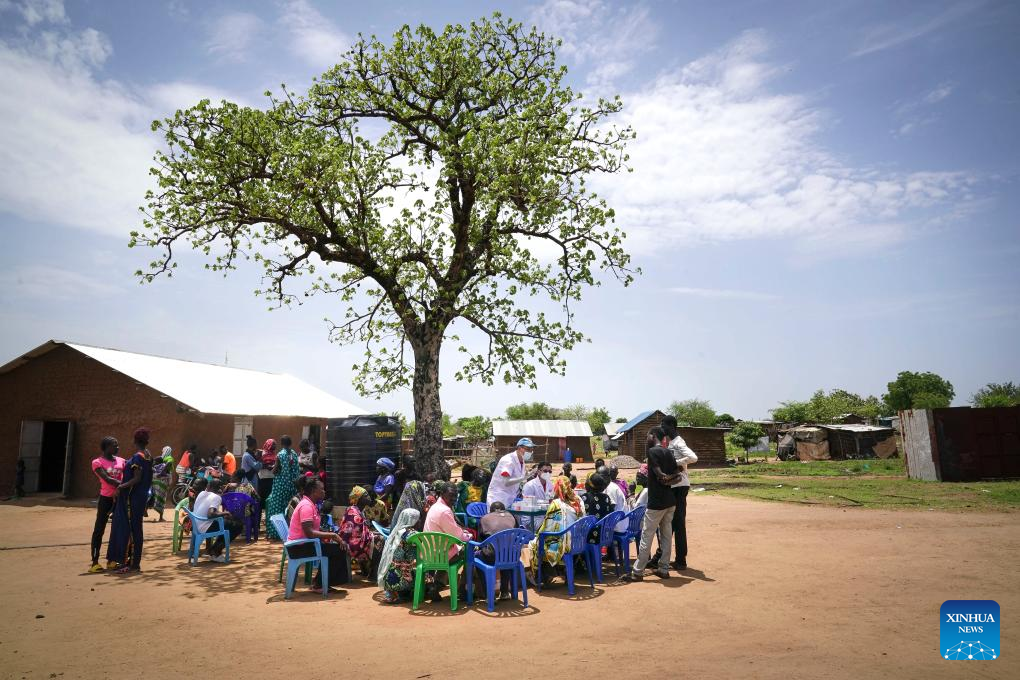
Doctors from the 11th batch of Chinese medical team provide free treatment for people in Nakitun Village, Juba, South Sudan, April 10, 2024. (Xinhua/Han Xu)
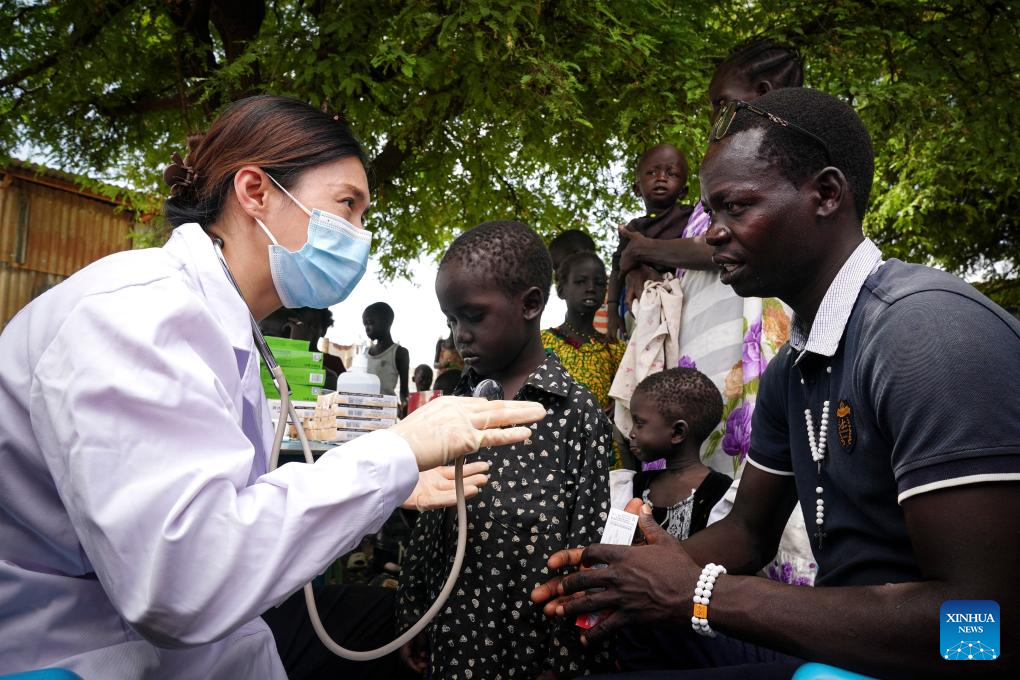
A doctor from the 11th batch of Chinese medical team provides free treatment for a man in Nakitun Village, Juba, South Sudan, April 10, 2024. (Xinhua/Han Xu)
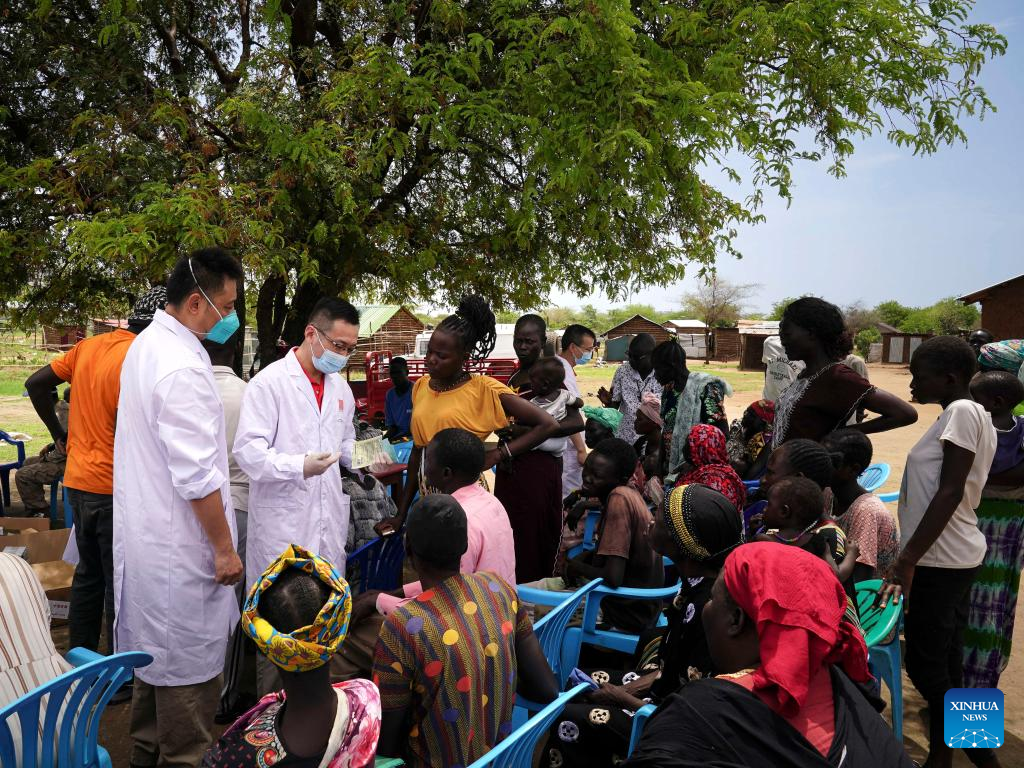
Doctors from the 11th batch of Chinese medical team provide free treatment for people in Nakitun Village, Juba, South Sudan, April 10, 2024. (Xinhua/Han Xu)
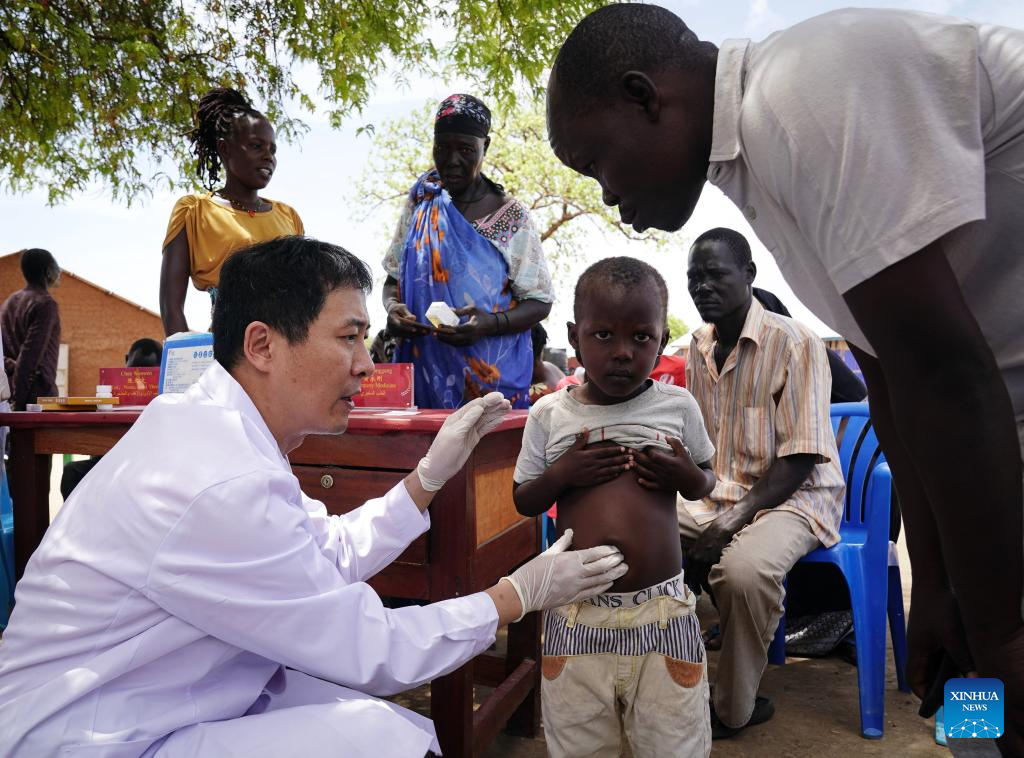
A doctor from the 11th batch of Chinese medical team provides free treatment for a child in Nakitun Village, Juba, South Sudan, April 10, 2024. (Xinhua/Han Xu)

Doctors from the 11th batch of Chinese medical team provide free treatment for people in Nakitun Village, Juba, South Sudan, April 10, 2024. (Xinhua/Han Xu)
